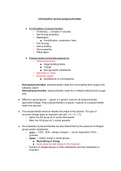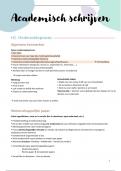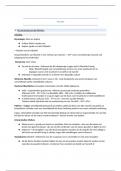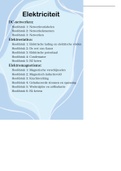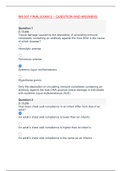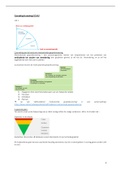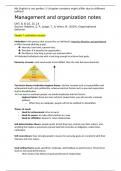Samenvatting
Summary reader polysaccharides (FCH30306)
- Vak
- Instelling
I have summarized the content of the polysaccharide part of the reader for the course Food Ingredient Functionality (FCH30306). Together with the summary of the knowledge clips (see my other uploads), it form a great preparation for the polysaccharide part of the exam. Good luck studying!
[Meer zien]
